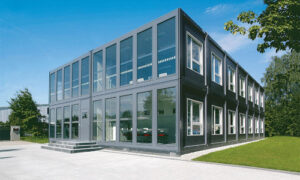Pharmaceutical engineering in a sub-discipline of chemical engineering which focuses on drug creation, design, manufacture and distribution. It is a link between materials science and drug making technology, guaranteeing the manufacturing of pharmaceutical goods effectively, securely and to code. Tucked into this article is a discussion of how drug manufacturing science is becoming incorporated with equipment design and what specific role pharmaceutical equipment manufacturing companies play in the overall progress of the field.
The Role of Pharmaceutical Engineering
Pharmaceutical engineering is vital in the formulation of drugs from the development process up to commercial synthesis. It deals with the use of engineering principles in the development, improvement and evaluation of operations systems in the pharmaceutical industry. This field is important in making certain that the drugs developed are manufactured in the right manner, and in the right quality and potency as expected.
That is why, pharmaceutical engineering enables the decision-maker to have a system that has been made in such a method that it genuinely satisfies the field of drug manufacturing science and equipment techniques and likewise is permitted under administrative guidelines and rules. This integration is useful in manufacturing different classes of pharmaceuticals; the tableted products which include; the packaged smaller sized tablets, one’s of which are technically known as capsules; the injectables; and the other biologic products.
Manufacturing industries involved in the production of equipment to be used in the production of pharmaceutical products have the responsibility of manufacturing the equipment that is required in the complex manufacturing process. These firms integrate with the pharmaceutical engineers in order to ascertain that the plant they possess meets high standards of output and quality in addition to being effective as required by the market.
Designing Equipment for Drug Manufacturing
Pharmaceutical equipment design is not a simple task in the sense that one has to understand engineering and drug manufacturing at the same time. Materials and machinery need to be suited for application in processes that occur in main sectors of the operations including mixing and granulation, tablet compression, and coating processes.
For instance, a tablet maker must be built to actively and consistently form powders for tablets in specific size, shape and weight measurements so that each tablet has the appropriate dosage of the API. The design of the tablet maker must also consider other characteristics of the powdered formulation and the process of compression such as the flow characteristics of the powder, the compression force needed among other things, must also consider aspects to do with high rates of production.
Manufacturers of pharmaceutical equipment work closely with pharmaceutical engineers to develop equipment to suit these conditions. Such a partnership means that not only is the equipment efficient, but it is also designed to suit the specific feature of the drug in production. These firms combine drug manufacturing science knowledge with equipment designing so as to enable the pharmaceutical manufacturing firms to substantially improve their efficiency and quality of their products.
The Importance of Process Optimization
Process optimization is an essential sub-discipline of pharmaceutical engineering that concerns the enhancement of efficiency in drug production processes. Optimisation entails control of processes and products right from production in order to gain the best results.
In the manufacturing of drugs, the optimization of the production process offers several advantages, these include; For instance, increases in the granulation techniques within the tablet manufacturing process can lead to effective mixing, uniform weight and quick production durations.
Another way in which companies that manufacture equipment for use in pharmaceutical production enhance process efficiency, is through design – for instance, a way might design equipment that can be tweaked to improve processes. They come with factors like speed regulators, tunable force compressions as well as modularity that enables little swapping over the products being manufactured. With such equipment, these companies assist the drug producers to be more efficient and more capable of competing in the market.
Ensuring Compliance with Regulatory Standards
Pursuance of compliance to regulatory requirements is always important in the production of pharmaceutical products. Pharmaceutical engineers must also make sure that the manufacturing processes and the specific tools and equipment do not fall short of the requirements of regulatory agencies worldwide including the FDA and the EMA and other similar institutions.
Design of the equipment has always been a factor of great influence with reference to compliance. For example, equipment to be used in pharmaceuticals’ production require features on the design that must enable easy cleaning and sterilization to reduce cases of contamination between different batches of the same drug. Also, machinery needs to ensure that a record of the processing is produced, which may act as important records for the auditors and quality assurance.
Manufacturers of pharmaceutical equipment are aware of the guidelines of the industry and incorporate them into their equipment. They offer validating aids such as documents’ appending and testing to confirm that the equipment meets all required norms. These supports are crucial to the operations of pharmaceutical manufacturers to avoid falling short of legal requirements that attract recall or any regulatory measure.
Pharmaceutical engineering is known to be a growing field with new technology and ways of doing things being developed to help in the manufacturing of drugs. Another trend that is being observed in this area is related to so-called automation and digitalization in equipment design.
Measuring offers increased accuracy when it comes to utilizing resources and manufacturing procedures since you eliminate the factor of human intervention. For example, equipment such as automated tablet makers can manufacture a large number of tablets with less or no interference from the operators and this makes it easier to maintain quality while in the process cutting on the personnel costs.
Data analytics and machine learning are also becoming a more important part of pharmaceutical engineering due to digitalization. This enables engineers to determine where improvements can be made of the manufacturing process, when the equipment requires to be maintained, or in general, and facilitate real-time production.
Matching these trends, the manufacturers of pharmaceutical equipment are now designing high efficiency equipment with features of automation and technical control. In doing so, they are able to continue to deliver the tools that drug manufacturers require to produce good pharmaceuticals in an evolving environment.
Conclusion
Pharmaceutical engineering is an important specialization that combines the science of drug manufacturing with the design of the equipment used in this process so as to promote efficiency, safety and compliance in drug production. In concert with pharmaceutical equipment manufacturing firms, engineers design proper processes as well as apparatus that provide for effective drug manufacture.
In the future, the trend towards the use of high technologies and the further optimization of the production processes remains the primary course. These trends should be followed along with partnering with professional equipment suppliers so as not to be outdone by the competition in delivering quality pharmaceutical products to the market.



































